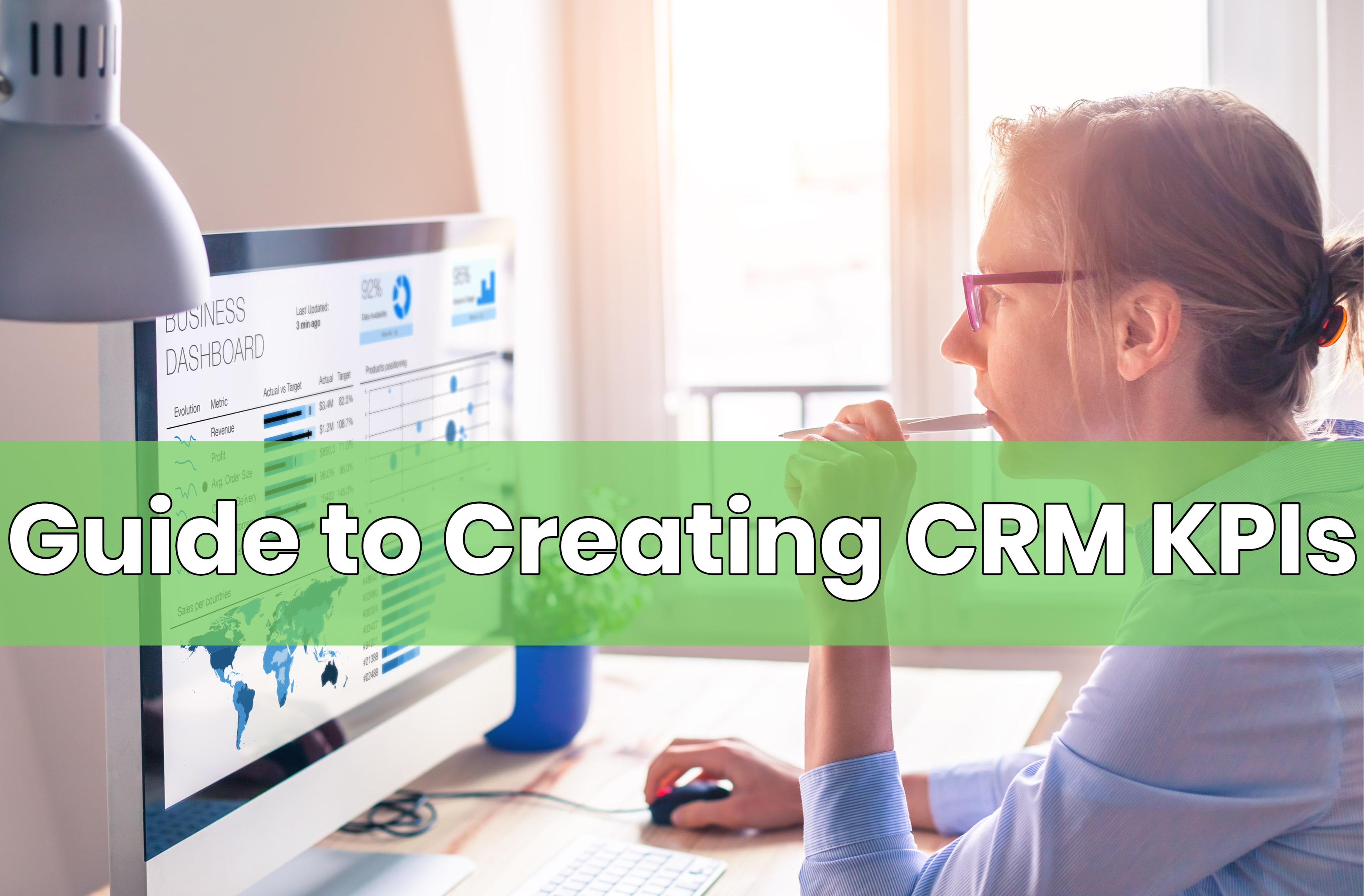Guide to Creating CRM KPIs
Our CRM consultants frequently arrive on the scene of a manufacturing or distribution firm to save the business from an ill-performing CRM system. However, we often find that nobody can share what precise problems need to be fixed. Furthermore, nobody can even explain the reason for their CRM implementation. What were the initial goals of the CRM instance? Which of these goals have been met, and which have not? What metrics were used to measure software performance? When an organization can’t answer these crucial questions, we’ve found that the problems originate from inadequate planning, not from the software itself.
Several of our posts have covered the importance of business process modeling (BPM), but it’s time to dig into one of the most critical aspects of preparing for software success: creating key performance indicators (KPIs). KPIs are valuable metrics that measure a business’s performance of specific operations. KPIs enable companies to use solid statistics to determine their progress in achieving their goals. Additionally, in the process of determining which KPIs they want to measure, businesses prioritize their goals and establish a plan for tracking their development. When our consultants discover that a business has been going without KPIs, we realize that their CRM failure probably results from a lack of planning and data-driven insight into the performance of their software.
For CRM success, it’s imperative to not only create KPIs but to create the right KPIs. Below, we’ll give you our tips for setting up and tracking KPIs to ensure you always stay on top of your business’s path to greatness.
Determine Business Goals
Before defining your CRM KPIs, establish your business goals. Where could your sales and marketing processes use improvement? What do you want to accomplish with your CRM instance? Failure to address such crucial questions could result in wasted time and shortcomings in customer service or lead generation. We’ve come across companies that measure KPIs, but they aren’t tracking the most useful metrics. When organizations concentrate on the wrong datasets, they risk missing huge deficiencies in their sales and marketing practices. By always keeping primary business goals in sight, businesses can focus on the most meaningful data and prioritize information and processes.
Define Metrics and Develop a Plan
Now that your company is on the same page when it comes to CRM and business goals, you’re ready to determine which metrics to track. Let’s say that your business is dissatisfied with the volume of customer complaints. Some KPIs you could measure include the number of complaints per month or customer service ratings. Perhaps one of your marketing objectives is to improve the performance of email campaigns. Tracking email response or click-through rates will provide critical insight into the effectiveness of these campaigns.
One goal that all companies with new CRM instances should have is quick, widespread user adoption. After all, your CRM software won’t earn a high ROI if it isn’t being used. Track user adoption by measuring the number of log-ins, completed activities, open leads and other critical metrics.
Once you define which KPIs to measure, the next step is to figure out how to track this data. Determine which employees will gather metrics, when they will measure it and the process for obtaining this information. Fortunately, CRM systems streamline KPI management. Microsoft Dynamics 365 and Salesforce both include user-friendly, comprehensive dashboards to measure the most useful metrics and automate data tracking and entry. These powerful CRM solutions ensure that companies always know where they stand in their quest for continuous improvement.
Wrap Up
In our data-driven marketplace, businesses can’t achieve success without utilizing data to measure progress. By putting in place a comprehensive KPI management strategy, organizations stay on top of their objectives. They know where they excel and where they need improvement, especially if they take advantage of the robust features of Salesforce and Microsoft Dynamics 365.
Datix is a certified partner of both Salesforce and Microsoft Dynamics 365, making us the top CRM experts for mid-market manufacturers and value-added distributors. With our vast knowledge of both systems, we can help companies determine which CRM software aligns best with their specific needs. In our 20 years of enterprise software consulting, we have honed our business process modeling skills and created innovative solutions to enable our clients to excel in their industries.
Need guidance in your CRM project? Contact Datix’s premier CRM consultants today!
{{cta(‘770c1544-d87d-4acb-9fc4-7a25e1385094′,’justifycenter’)}}


